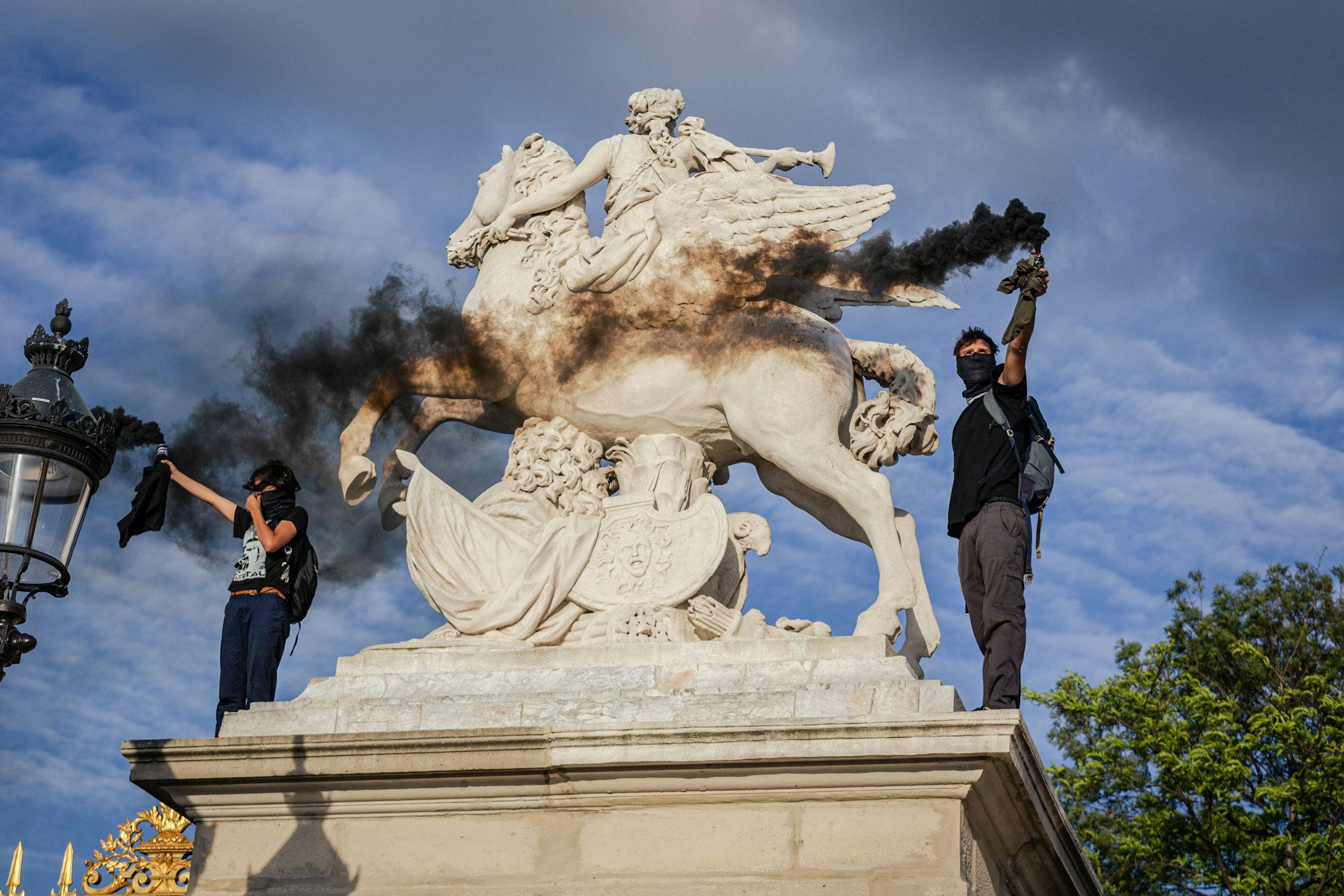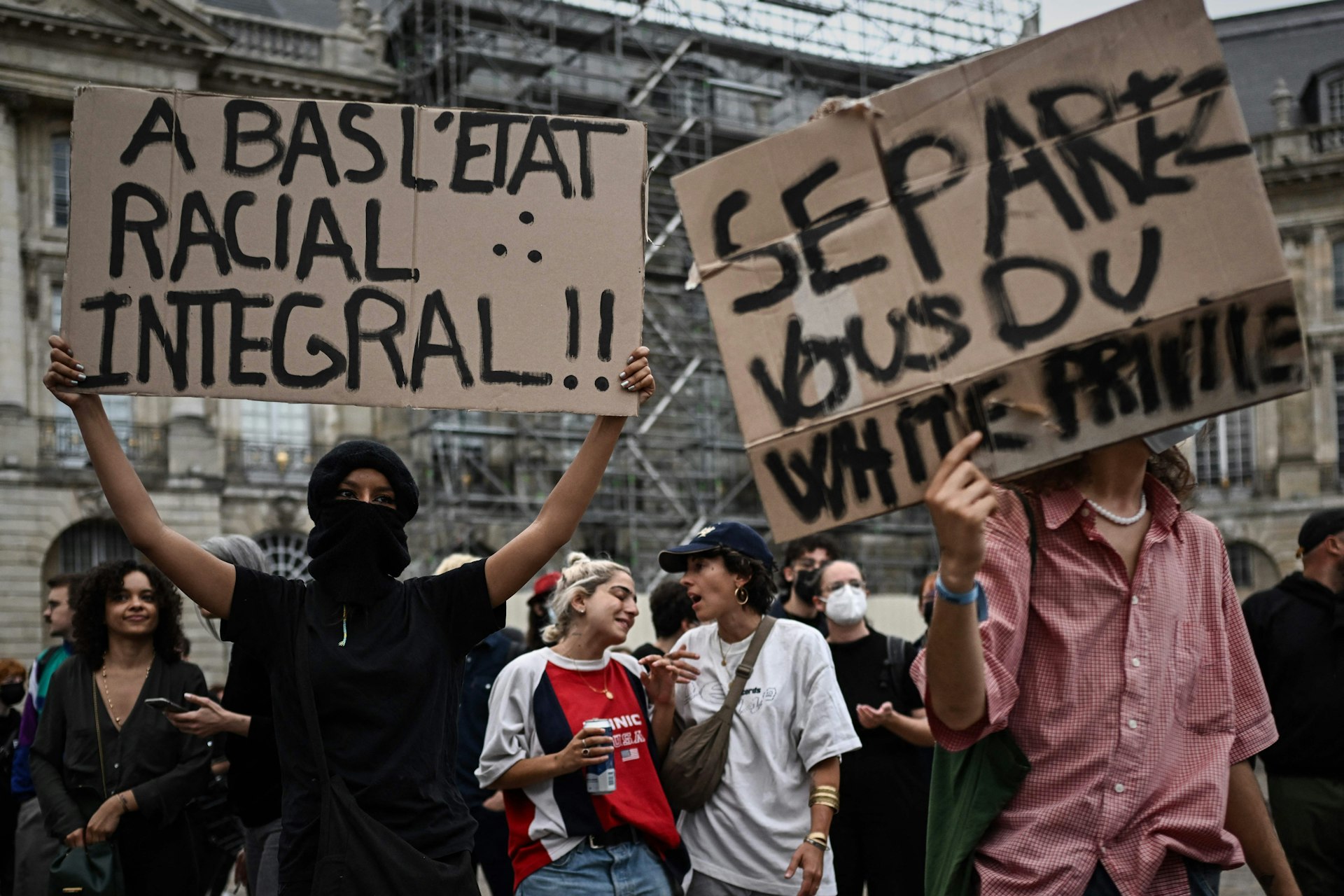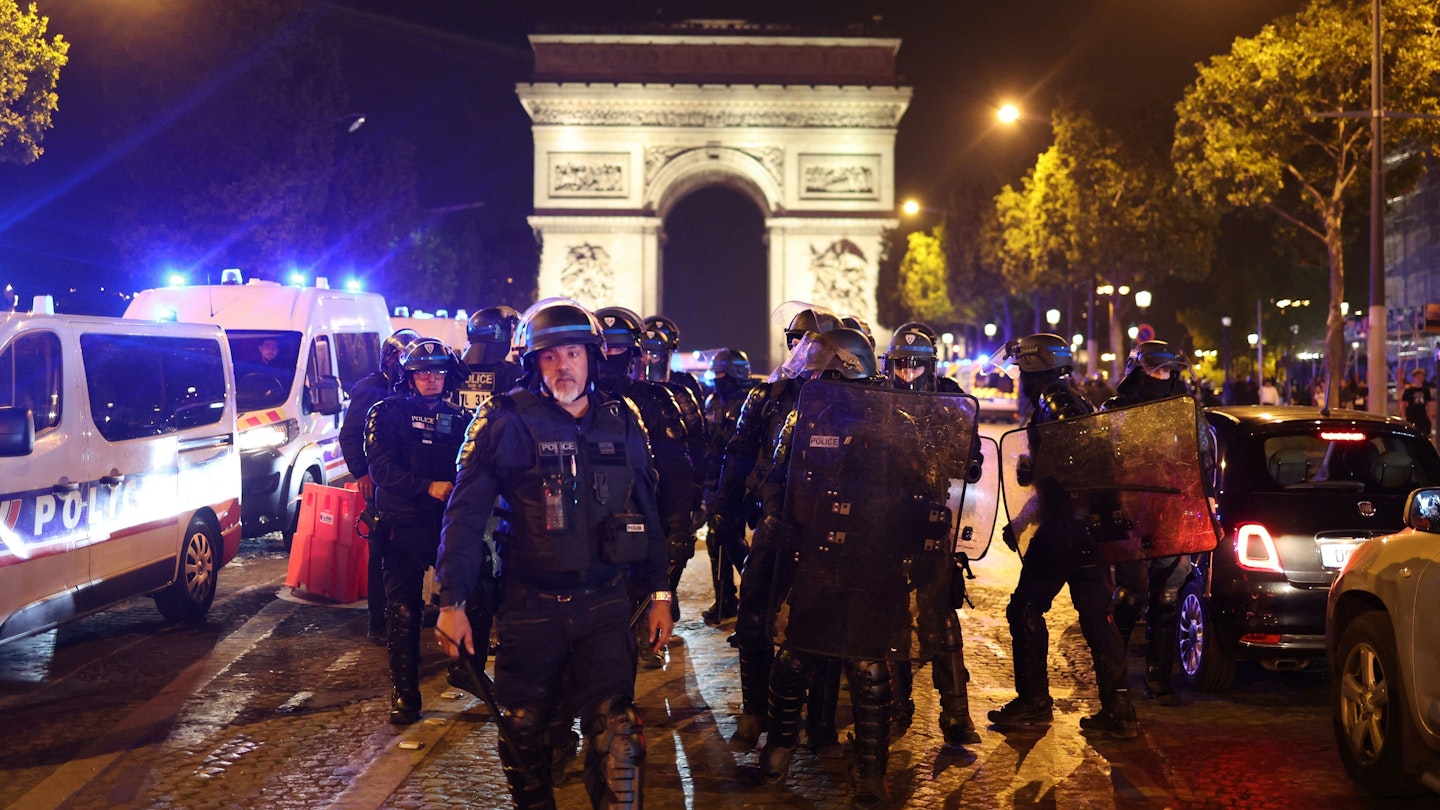Scenes of violent unrest erupting in cities like Paris, Marseille and Lyon have no doubt dampened many a France-bound holidaymaker’s excitement over the last week.
But before you make any decisions about keeping or canceling your upcoming vacation, we would advise taking the following factors into consideration.
Why are the riots in France happening?
On Tuesday, June 27, police shot and killed a French teen of North African descent at point-blank range during a traffic stop in the working-class Paris suburb of Nanterre. The shooting of Nahel Merzouk, 17, was caught on video, sparking outrage and riots against police forces, who have long been accused of racism and excess brutality.
Though the riots have subsided in the last few days, the situation is delicate, and constantly evolving.
Where are the riots in France happening?
Pretty much every big city in France has experienced some degree of violence connected to the police killing over the last week, including Paris, Marseille, Lyon, Lille, Strasbourg, Bordeaux, Nantes, Reims and Nice. But the unrest is not just contained to big cities and their surrounding suburbs, working-class areas home to multiracial communities. Smaller towns have not been spared, either.
If your accommodations are located toward the edge of a major city like Paris or Lyon, you may want to consider booking something closer to the city center – not necessarily because you’ll avoid potential unrest, but because the violence has also affected service hours on public transport (more on that later).
Along with storefronts, rioters have also been targeting municipal buildings including schools, libraries, town halls and police stations.

When do the riots in France happen?
Most of the violence kicks off at nightfall. Which is why cities in the greater Paris area, including Neuilly-sur-Marine, Clamart, Levallois-Perret, Meudon, Rosny-sous-Bois and Asnières-sur-Seine have started imposing curfews starting as early as 9pm.
Our advice: take advantage of the long summer days. Start your day early and squeeze in as many of your activities as possible during daylight hours. Once it starts to get dark, we recommend heading back to your lodging.
Fortunately, the quantity and intensity of the riots have recently shown signs of waning.
How is this impacting public transport?
Over the last few days, the government has canceled all tram and bus services after 9pm across the country, leading to major transportation headaches. The reason? Rioters have been targeting and torching buses and trams.
While that might not normally impact your travel routes, it’s important to remember that in Paris, the metro is currently experiencing major renovations and service closures across several lines, and your GPS app may suggest a bus or tram as an alternative route.
In Paris, the city’s subway system has also changed its hours of operation, closing an hour earlier over the weekend.
On Monday, public transport operators in Marseille announced plans to likewise close early, with the last train scheduled to run at 9pm.
Bottom line: pay extra attention to service changes.
What about museums, attractions and restaurants?
Unlike the demonstrations France experienced a few months ago, when public and unionized workers staged mass walkouts in protest of pension reforms, major attractions in Paris like the Louvre, Eiffel Tower and Musée d’Orsay have been largely unaffected and remain open to the public.
But you should also note that, at the recommendation of hospitality unions and associations, some restaurateurs and businesses have been choosing to close early or even altogether until the action dies down.
So you should probably check ahead of time if the restaurant you booked or the shop you intend to visit remains unaffected.

So, how safe is it to visit France right now?
Since the riots broke out, several governments have issued updated travel advisories warning their citizens to exercise caution while visiting France.
A few days into the riots, the US Embassy in Paris warned US citizens to avoid mass gatherings and areas of significant police activity, as such situations might turn violent and result in clashes.
France remains at level two of four in the US travel advisory levels, which warns citizens to exercise “increased caution in France due to terrorism and civil unrest.”
Similar warnings have been issued by the UK and Canadian governments.
How can I keep up to date on the latest developments in France?
Unlike the pension-reform protests, in which unions were legally bound to declare their protests in advance and give the public a heads-up for road, transportation and public institution closures, by their nature these riots have been chaotic and somewhat unpredictable.
To keep up to date on the latest developments, monitor local English-language sites like France24, RFI and The Local France.

What’s the verdict on visiting France this summer?
It all depends on your situation. Families with young kids might be scared off by the riots – but given that in this case you’d be more likely to return home by early evening anyway, the potential unrest might not impact your visit at all.
On the other hand, if your itinerary involves a lot of nocturnal outings or large-scale events, you’ll want to anticipate the possibility of cancellations, and make a few back-up plans.
The bottom line? Like the locals, if you practice common sense, stay vigilant, steer clear of big crowds and hot spots, and return home at a reasonable hour, you might never know that it was a summer of unrest in the country during your French vacation.












